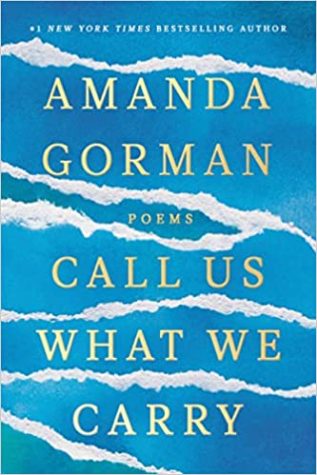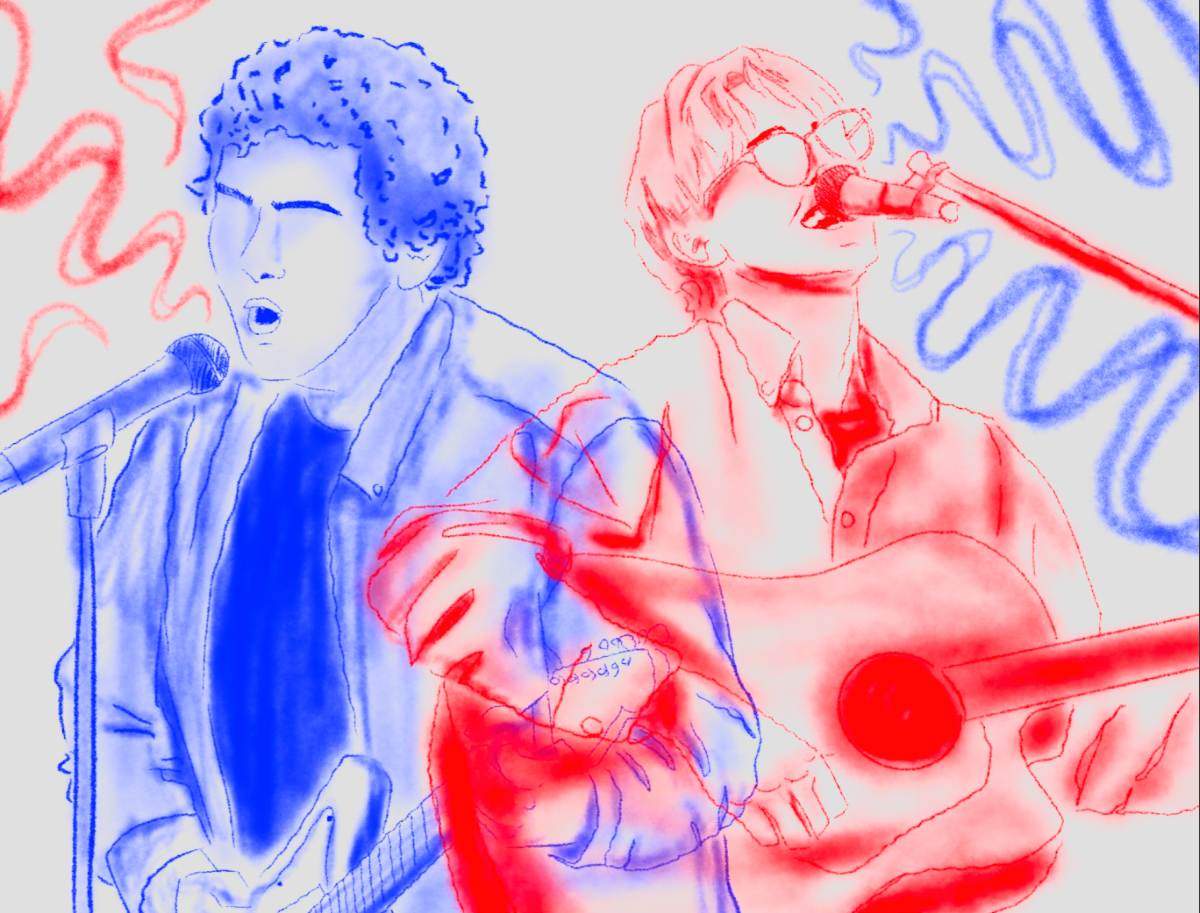‘Call Us What We Carry’ impactful, uplifting
February 22, 2022
Many people recognize Amanda Gorman for her compelling poetry performance at the 2021 Presidential Inauguration, and Gorman’s new book, “Call Us What We Carry,” speaks with equally stunning style and eloquence.
The collection of poems addresses the hardships our nation faced over the past two years, from the pandemic to racism. “Call Us What We Carry” is a beautiful compilation of lessons from the past, present and future.
I certainly recommend “Call Us What We Carry” to my peers because I think it is one of the defining pieces of literature of our time.

Readers should expect to find something new on every page, whether it be a rhyme scheme or different poem structure. In some poems, the text is shaped to form an image relating to the topic, such as a face mask. Missing words and empty spaces accentuate the meaning of poems called “erasure poems.” Another poem compares survey responses from citizens of today’s pandemic-ridden society – Pandem – to responses from an idyllic society – Panpax. Gorman also fits the storylines of the past two years into the Hero’s Journey outline.
“Call Us What We Carry” opened my eyes to a new, unique perspective of the past two years. While I have my own perspective from experiencing recent events, this book made me curious as to how these difficult times in America will be remembered by future generations. Fans of Lin-Manuel Miranda’s “Hamilton: The Musical” might take a special interest in Gorman’s writing because of overlapping themes like “history has its eyes on you” and the significance of words.
My main advice to prospective readers is to have a highlighter in hand when reading this collection. I wanted to remember every one of Gorman’s sentiments on love, loss, pain, identity, hope and history. Gorman portrays America’s collective grief in a way that unexpectedly left me with a greater optimism that we can rise from trials as better people. I discovered that this newfound hope not only applies to our country, but to my personal trials.
Gorman herself perfectly describes this book’s impact on me, writing that a poem “runs/Through the body before leaving/Us something slightly more than we were.”




